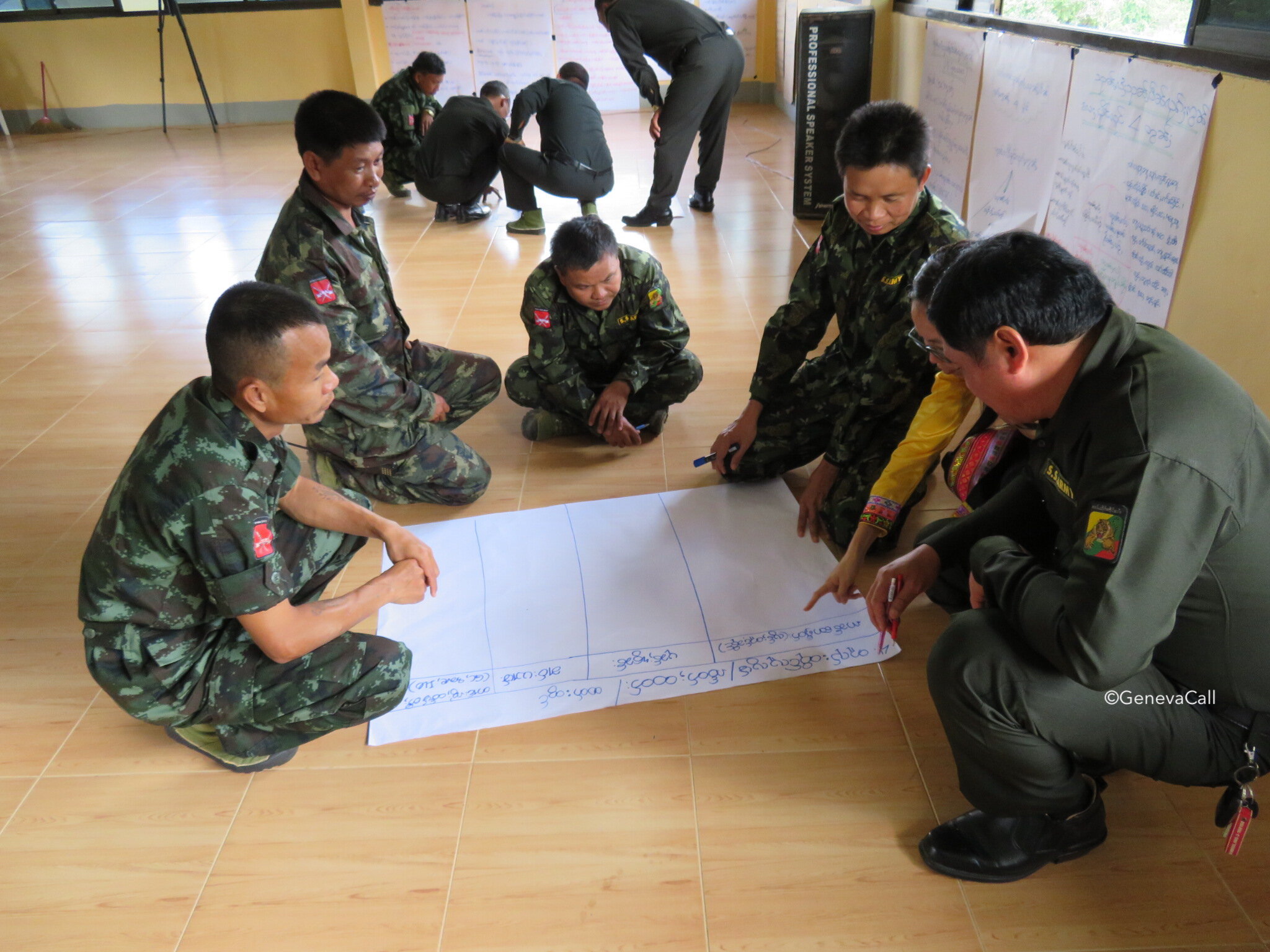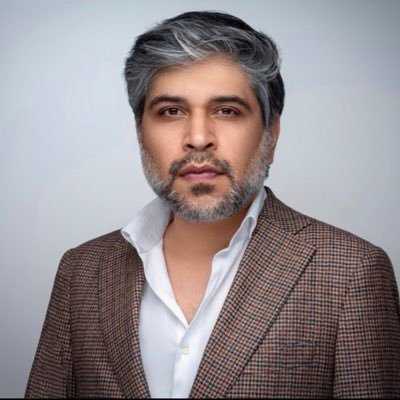
Advisory Board
The Advisory Board of the Generating Respect Project is comprised of renowned academics and experienced practitioners from different disciplinary backgrounds, who generously provide the research team with conceptual and operational guidance.
Prof. Shaheen Sardar Ali
National Academy of Higher Education, Pakistan
Shaheen Sardar Ali is the Rector of the National Academy of Higher Education, Pakistan. She has held professorial positions at the Universities of Peshawar, Warwick, and Oslo. She was Vice-Chair of the United Nations Working Group on Arbitrary Detention (2008-2014). Professor Ali served as cabinet Minister for Health, Population Welfare and Women Development, Government of the Khyber Pukhtunkhwa Province of Pakistan and Chair of Pakistan's first National Commission on the Status of Women (1999-2001). In 2012, she was named one of the 100 most influential women of Pakistan.
Professor Ali has published extensively in Islamic law, international human rights law including human rights of women and children and family law. She is the author of 9 books, 41 journal articles and 30 book chapters as well as a number of reviews and reports for national and international bodies. Her most recent monograph, Modern Challenges to Islamic Law (Cambridge University Press, 2016) has been widely acclaimed as a ground-breaking contribution to Islamic law scholarship.
Prof. Mashood Baderin
School of Law, School of Oriental and African Studies
Mashood A. Baderin is Professor of Law at SOAS, University of London. He was Head of the SOAS School of Law from 2009 to 2012, Director of the SOAS Centre of Islamic and Middle Eastern Law (CIMEL) from 2012 to 2015, Chair of the Centre of African Studies (CAS) from 2015 to 2018, and member of the Board of Trustees of the International African Institute from 2012 to 2016. He was formerly Professor of Law at Brunel University, Uxbridge, London, and had also taught at the University of the West of England, Bristol, the University of Nottingham, and the University of Southampton. He has been visiting Professor to the American University of Paris in France and the Islamic Sciences University in Malaysia. He specialises in Islamic Law, Human Rights Law, International Law, and Law & Development in Africa. He has published widely in his area of research. He is founding co-editor of the Muslim World Journal of Human Rights, and is on the editorial and advisory boards of a number of academic journals. He served as the UN Independent Expert on the situation of Human Rights in the Sudan from 2012 to 2014.
Outside his academic engagement, he is the Resident Islamic Consultant at the Muslim Association of Nigeria UK (MANUK) Old Kent Road Mosque and Islamic Cultural Centre, SE1 5JH, in London, where he gives lectures and offers Islamic counselling and guidance as part of his contribution to the community.
Mr Pascal Bongard
Geneva Call
Pascal Bongard has been working with Geneva Call since 2000. He has occupied various positions and is currently the Head of the Policy and Legal Unit. He has published widely on issues related to humanitarian engagement with armed non-State actors and Geneva Call’s experience in particular.
Prior to joining Geneva Call, Pascal worked with the Swiss Federal Department of Foreign Affairs in Bern and the United Nations High Commissioner for Refugees (UNHCR) in Ethiopia.
He holds a Bachelor degree in History and Journalism from the University of Fribourg, a Master degree in International Relations from the Graduate Institute of International and Development Studies in Geneva and a Master degree in Comparative Politics from the London School of Economics and Political Science.
Prof. Emiliano J. Buis
University of Buenos Aires (UBA) Law School
Emiliano J. Buis is Chair of Public International Law, International Humanitarian Law and Law of Disarmament, Non-Proliferation and Weapons Control at the University of Buenos Aires (UBA) Law School, where he is the Deputy Director of its LLM Program in International Relations. He is also Professor of Public International Law at the Central University of the Province of Buenos Aires in Azul, where he co-directs the Center for Human Rights. A Permanent Researcher at the National Council for Science and Technology (CONICET) in Argentina, he is the Director of the Observatory of International Humanitarian Law (IHL) and chairs the Seminar on Theory and History of International Law at the Ambrosio Gioja Institute (UBA).
Former Legal Advisor of the Direction for International Security and Nuclear Affairs at the Argentinian Ministry of Foreign Relations, he is currently a Member of the Editorial Board of the International Review of the Red Cross and of the Committee for the Jean-Pictet Competition on IHL.
His current interdisciplinary research project deals with the performative dimensions of international law, including its emotional and material physicality.
Prof. Andrew Clapham
Graduate Institute of International and Development Studies in Geneva
Andrew Clapham is Professor of International Law at the Graduate Institute of International and Development Studies in Geneva, which he joined in 1997.
He has been a member of the UN Commission on Human Rights in South Sudan since October 2017. He is an Honorary Member of the International Commission of Jurists. In 2003 he was an Adviser on International Humanitarian Law to Sergio Vieira de Mello, Special Representative of the UN Secretary-General in Iraq.
He is the co-editor with Paola Gaeta of The Oxford Handbook of International Law in Armed Conflict (2014) and co-editor with Paola Gaeta and Marco Sassòli of The 1949 Geneva Conventions: A Commentary (2015). He is currently preparing a book on War.
Dr
Katharine Fortin
Utrecht University
Katharine Fortin is an Associate Professor at Utrecht University where she teaches international humanitarian law, international human rights law and public international law.
The focus of her research is the legal framework which applies to non-international armed conflicts, with a particular focus on intersections between international humanitarian law and international human rights law. She has published widely in international journals on these topics and her monograph The Accountability of Armed Groups under Human Rights Law (OUP, 2017) won the 2018 Lieber Prize. She is an Executive Editor of the Netherlands Quarterly of Human Rights and founder and editor of the Armed Groups and International Law blog.
Previously, Katharine worked as a Litigation Associate at Norton Rose Fulbright and an Associate Legal Officer at the ICTY.
Prof. Tanisha Fazal
University of Minnesota
Tanisha Fazal is Professor of Political Science at the University of Minnesota. Her scholarship focuses on sovereignty, international law, and armed conflict. Fazal’s current research analyzes the effect of improvements in medical care in conflict zones on the long-term costs of war.
She is the author of State Death: The Politics and Geography of Conquest, Occupation, and Annexation (Princeton University Press, 2007), which won the 2008 Best Book Award of APSA’s Conflict Processes Section, and Wars of Law: Unintended Consequences in the Regulation of Armed Conflict (Cornell University Press, 2018), winner of the 2019 Best Book Award of ISA’s International Law Section and the 2019 Best Book Award of APSA’s International Collaboration Section. Her work has also appeared in journals such as the British Journal of Political Science, Daedalus, Foreign Affairs, International Organization, International Security, International Studies Review, Journal of Global Security Studies, and Security Studies.
She has been a fellow at the Center for International Security and Cooperation at Stanford University, the Olin Institute for Strategic Studies at Harvard University, and the Carnegie Council on International Ethics. Read more about Tanisha.
Dr Nontando Hadebe
St Augustine College &
The Circle, South Africa
Nontando Hadebe is a woman theologian from Southern Africa and is the current chair of the Chapter of The Circle of Concerned African Women Theologians in South Africa (The Circle). The Circle is both inter-faith and ecumenical. One of its main goals is to confront patriarchy and oppression of women in religion and culture through generating liberating theologies for women in different contexts.
She is also a board member of several theological organizations including Catholic Women Preach, International Network of Catholic Theological Societies, Association of Catholic Universities in Africa and Madagascar and Future Church.
After completing her doctorate in 2013 at St Augustine College where she is currently teaching part time, she was awarded an International Fellowship by the Jesuit School of Theology Berkerley, California, USA in 2014. In 2015 she was awarded a Fulbright Scholar in Resident Scholarship at Emmanuel College, Boston, USA. Thereafter in 2016-2017 she was awarded a post-doctoral fellow by the University of South Africa and her research was on gender and theological education. She also taught a module on counselling in the Peace Studies degree at St Augustine College and hosts a weekly program on Radio Veritas.
Mr
Yousuf Syed Khan
Office of the United Nations High Commissioner for Human Rights
Yousuf Syed Khan has extensive legal experience dealing with conflict situations and their aftermath. He currently serves as the Analysis and Reporting Officer for the UN OHCHR examination of the human rights situation in Belarus, based in Geneva. He previously served as the Legal/Reporting Officer for the UN Commission on Human Rights in South Sudan, and as the Reporting Officer/Legal Analyst for the UN Commission of Inquiry on the Syrian Arab Republic.
Prior to these roles, Yousuf worked for the UN in Afghanistan (in both Kabul, and in a Taliban stronghold on the southeast border with Pakistan), and with the International Criminal Tribunal for the former Yugoslavia (ICTY).
Before joining the United Nations, Yousuf was a Research Consultant to Professor M. Cherif Bassiouni analysing war crimes and crimes against humanity in Libya, and worked as a Legal Adviser on issues of occupation and annexation in the Golan Heights.
He holds a Juris Dr. from the University of Wisconsin Madison, and an Advanced LL.M. in Public International Law from Leiden University.
@yousufsyedkhan
Mr
Stephen Wilkinson
Diakonia Global International Humanitarian Law Centre
Stephen Wilkinson is an experienced international lawyer and humanitarian protection specialist with expertise in international humanitarian law and human rights.
Over the last ten year he has worked with a range of humanitarian actors across several contexts addressing the strategic application of IHL within humanitarian operations. Field experience includes time in Israel/Palestine, Lebanon, Mali, Cambodia, and regular engagement with actors in Myanmar, Pakistan, Ukraine and Kenya. Currently, Stephen works as the Manager for the newly formed Diakonia IHL Centre. Prior to this current role, Stephen worked as a Senior Legal Research Associate with the Harvard University Humanitarian Initiative and Legal Officer with United Nations Relief and Works Agency.
In addition he has produced several publications relating to IHL specifically as they relate to the topic of fact finding, investigations and standards of proof. He is a regular lecturer at the Swedish Defence College.










